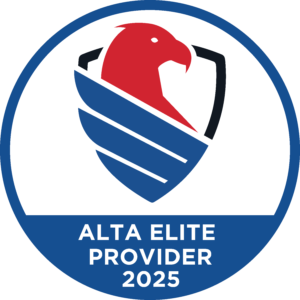Loan document signings are crucial financial transactions for signers. It’s understandable that borrowers often have questions, and the Notary Signing Agent is often the first person they ask. But providing unauthorized advice or the wrong answers could cause serious problems for the borrower or lender — and put the Signing Agent at risk of liability and loss of future assignments.
Here are 3 of the more common risky questions borrowers ask and guidance about how to answer them.
Risky Question 1: “What Is Your Opinion Of My Interest Rate?”
There is a lot of information a borrower must think through in closing a mortgage transaction — payment amounts, amortization schedules, interest rates and finance charges are just a few examples. Naturally, signers may want an experienced person’s opinion or advice on whether their loan terms are favorable. However, you may not provide legal advice or opinions about loan terms. By doing so, you may unduly influence a borrower to delay the closing of the loan or accidentally give the borrower wrong or misleading information.
In many cases, borrowers simply want to make sure the closing documents contain the correct loan terms and ask where to find them. For example, a signer may ask, “Where can I find the interest rate for my loan?” In response, you could point to the appropriate section of the note and say, “You can find that information here.” But do not offer an opinion of those terms. If a signer asks, “I’m not sure about this interest rate. Do you think it is too high?” you must respond, “I’m sorry, I can’t advise you on that, but you can contact your lender or mortgage broker for and explanation.”
Risky Question 2: “Why Are My Closing Costs So High?”
Seeing a closing disclosure or settlement statement can be a sticker shock. If a borrower is unhappy with their closing costs, they may ask about it. The figure may contain prepaid interest on the new loan, interest due on the old loan, title fees, hazard and title insurance premiums, prorations of property taxes and home owner association dues, recording fees and more. Just as with questions about loan terms, attempting to answer questions about closing costs is risky. You may not explain, interpret or offer opinions about settlement fees. If asked, for example, how prepaid interest is calculated, simply respond, “I’m sorry, but you need to speak to the lender or closing agent to answer that question.”
Risky Question 3: “Do You Think I Should Go Through With This Loan?”
A home loan carries a lot of stress. The transaction itself is stressful enough, but other major life stressors — such as a new job, new marriage, long distance relocation, or birth of a child that often occur at the same time — can compound the stress. Understandably, a signer may express doubts or second thoughts about going through with the loan during the loan signing appointment and look to you for reassurance. NSAs, however, should never try to influence the signer’s decision by saying something like, “Yes, you should go ahead, it’s fine,” or “No, you shouldn’t do this, it’s a bad idea.”
If the loan gives the borrower the right to cancel within three business days after signing, you may pull out the Right To Cancel disclosure and have the borrower sign to indicate they received the disclosure right then and instead of later when it comes up in the stacking order. This may provide the borrower the assurance they need at the moment of doubt. If that doesn’t help and the signer still has reservations, offer to contact the borrower’s mortgage broker or loan agent.
By David Thun on March 13, 2019
David Thun is an Associate Editor at the National Notary Association.




